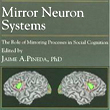Monday, 4 February 2013
Adelson’s Checkerboard
 Optical illusions are always a humbling experience for people who think that they see the world “the way it really is”. Often, when such people are confronted with optical illusions induced by context, the context has to be removed and then restored several times before these people can be convinced that, for example, two lines that appear to be different lengths are actually the same.
Optical illusions are always a humbling experience for people who think that they see the world “the way it really is”. Often, when such people are confronted with optical illusions induced by context, the context has to be removed and then restored several times before these people can be convinced that, for example, two lines that appear to be different lengths are actually the same.
The world that we see is often ambiguous, and our visual system tries to give it a meaning on the basis of certain recurrent clues. Scientists today are familiar with some of these clues and can combine them to produce some truly astounding optical illusions. One famous example is Adelson’s checkerboard, in which one square is perceived as black and another as white, even though both are actually the same shade of grey! (more…)
The Senses | Comments Closed
Monday, 28 January 2013
Bluffing in Interrogations Leads to False Confessions
 When someone who was suspected of a crime confessed to it, that always used to be regarded as convincing evidence of his or her guilt. But with the advent of molecular biology, traces of DNA have been used to prove the innocence of many suspects, some 25% of whom had previously pleaded guilty or signed confessions after being interrogated.
When someone who was suspected of a crime confessed to it, that always used to be regarded as convincing evidence of his or her guilt. But with the advent of molecular biology, traces of DNA have been used to prove the innocence of many suspects, some 25% of whom had previously pleaded guilty or signed confessions after being interrogated.
How is this possible? The psychologists who study this question distinguish two main categories of factors that can lead suspects to incriminate themselves in this way. The first category consists of personal vulnerabilities, such as being young, or intellectually impaired, or having a compliant personality. The second consists of pressures inherent in the conditions of custody and interrogation, such as having an insufficient knowledge of the law, or being afraid of being assaulted, or threatened with a severe sentence, or subjected to torture that causes pain. (more…)
The Emergence of Consciousness | Comments Closed
Monday, 21 January 2013
When Fear Makes Us React Conservatively
 Paul Nail and his colleagues at the University of Central Arkansas conducted a series of three experiments that showed how a psychologically threatening situation can make someone whose thinking is usually liberal adopt a more conservative position. The adjectives “liberal” and “conservative” should be understood here in their general sense, where the former describes an attitude favouring openness, empathy, communication, and social justice, while the latter emphasizes tradition, order, authority, and discipline. (more…)
Paul Nail and his colleagues at the University of Central Arkansas conducted a series of three experiments that showed how a psychologically threatening situation can make someone whose thinking is usually liberal adopt a more conservative position. The adjectives “liberal” and “conservative” should be understood here in their general sense, where the former describes an attitude favouring openness, empathy, communication, and social justice, while the latter emphasizes tradition, order, authority, and discipline. (more…)
Emotions and the Brain | Comments Closed
Monday, 14 January 2013
Links on Forgetting and Amnesia
 This week, as I have before in this blog, I am posting a set of new links to other web sites that discuss a subject covered in The Brain from Top to Bottom. The subject this week is the sub-topic “Forgetting and Amnesia” under the topic “Memory and the Brain”. For each link, I also provide a brief description of the content on the site in question. (more…)
This week, as I have before in this blog, I am posting a set of new links to other web sites that discuss a subject covered in The Brain from Top to Bottom. The subject this week is the sub-topic “Forgetting and Amnesia” under the topic “Memory and the Brain”. For each link, I also provide a brief description of the content on the site in question. (more…)
Memory and the Brain | Comments Closed
Monday, 7 January 2013
Eight Problems with Mirror Neurons
 Mirror neurons are neurons with fascinating characteristics that were discovered in monkeys in the mid-1990s. Located mainly in Area F5 of the cortex, these neurons are activated not only when a monkey performs a specific action but also when that monkey simply sees another monkey perform that same action. This is surprising behaviour, to say the least, for neurons located in a motor area of the cortex.
Mirror neurons are neurons with fascinating characteristics that were discovered in monkeys in the mid-1990s. Located mainly in Area F5 of the cortex, these neurons are activated not only when a monkey performs a specific action but also when that monkey simply sees another monkey perform that same action. This is surprising behaviour, to say the least, for neurons located in a motor area of the cortex.
Since just about the same area (the premotor area) exists in the human brain, it is highly likely that humans also have mirror neurons. But the data that have been gathered on this subject remain controversial, because of constraints on experiments with human beings. (more…)
Body Movement and the Brain | Comments Closed








